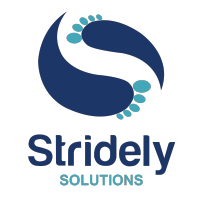So now when you have chosen a platform for Business Intelligence: flexible, usable, manageable, scalable: getting all these great abilities in one package. Soon you’ll integrate, visualize and collaborate across the company as never before. A consistent view of the data is in your hand. You can see the end of spreadsheet hell. With no more complaints about compliance.
But as usual it never quite works that way, does it? Your carefully crafted architecture strains to hold together from the first day of deployment.
At 9pm, the night before the quarterly business review, with numbers to crunch and new charts yet to create, your sales team is still reaching for Excel rather than your cool BI tool. Convenience wins over compliance, and years of choosing Excel makes easy choice. Nor should you think this scenario a bad thing: people are working hard in your company to get things done.
Elsewhere in your organization, an expert needs just that one visualization your BI tool lacks. Or that data source. Or that algorithm. Soon enough, there will be one more tool for you to manage when you find out about it, belatedly. It will be a little more specialized and gaining a foothold.
Data hub- The BI Architecture
We can however design an architecture to deal with change from it. And to do so, your aim should be to insulate systems from breaking changes while enabling simple integration and rapid development of new designs.
Users might access the underlying data models from a wide variety of tools, even the latest cool BI visualizations. Architects might add new sources to the data warehouse or even new subject areas following a merger. Administrators maintain the authority of the data by strict quality controls.
There are been certain myths about Data warehouse automation. Yet a data warehouse such as this seems unlikely to be your answer either. No doubt the architecture can live on, for certain subject areas where absolute control of the process is more important than flexibility.
For your other use cases such as marketing, supply chain, sales analysis and production, a data hub will more likely meet your needs.
A hub integrates with just as many sources and clients as a data warehouse. In the late hours, your users may go for Excel rather the BI platform, but they source data from your hub as easily as from any other Excel table and that is the benefit.
As per my experience, whether working on SQL Server, PowerPivot or Qlik, data architectures work best when they meet the real world needs of an evolving environment and a changing toolset. I like hubs for that reason, and with automated development, I Love them even more.


